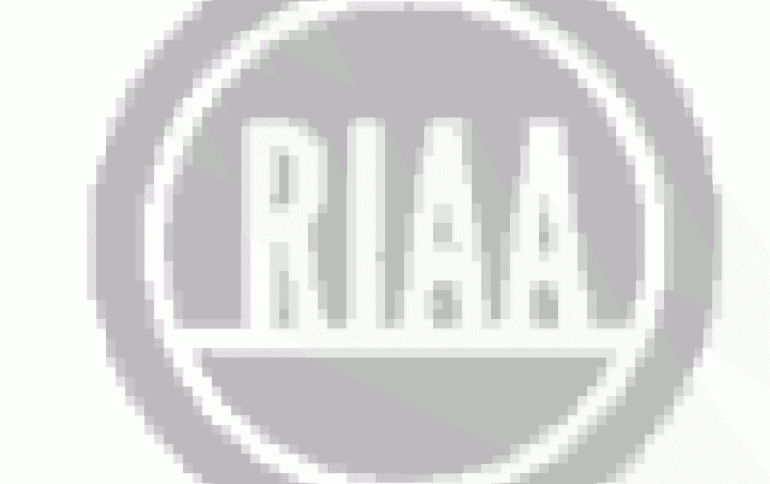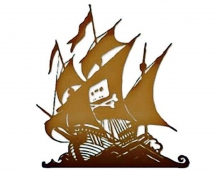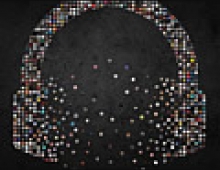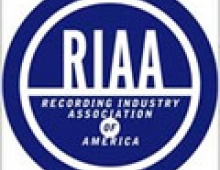
Music Industry Debuts New Educational Video for College, University Use This Fall
RIAA has developed a new video to help inform students about the potential consequences of illegally downloading music and the many legal alternatives available today.
Available free of charge for use by colleges and universities beginning this fall, the video can be ordered from http://www.campusdownloading.com/.
"We are thankful to our colleagues in the university community who have worked with us on this worthwhile project," said Cary Sherman, RIAA president and co-chairman of the Joint Committee of the Higher Education and Entertainment Communities. "Together we have made important strides in educating students about the do's and don'ts of online music and other forms of intellectual property.
"Even with meaningful collaborative efforts, we cannot afford to be complacent," Sherman added. "We need to engage students to think critically about these issues every way we can. We have often heard from schools seeking additional resources to help us prompt that dialogue with students. We hope this video helps answer that call."
Featured in the eight-minute video are Dr. Graham Spanier, president of Pennsylvania State University (PSU) and the Joint Committee's other co-chairman, and Derek "Mickey" Borchardt, a University of North Carolina at Charlotte student sentenced earlier this year to six months home confinement as part of the federal music piracy crackdown "Operation FastLink."
ACE, the major coordinating body for all of the nation's higher education institutions, has alerted college presidents to the availability of this video and will work with other associations to make sure they are aware of this resource as well.
"Illegal peer-to-peer file sharing of copyrighted music and movies is an issue that many colleges and universities have wrestled with in recent years--and they have been proactively seeking and implementing new ways to protect such material," said David Ward, president of ACE. "It is especially important to us, because as a source of discovery and innovation our campuses have an inherent respect for the value of intellectual property. For these reasons, we are pleased to partner with the RIAA on this initiative and believe the video will be a useful tool in our institutions' ongoing efforts to educate students on this important subject."
With a membership comprised of more than 2,000 colleges, universities, and educational organizations, EDUCAUSE is a nonprofit association dedicated to advancing higher education by promoting the intelligent use information technology. In a membership-wide email, EDUCAUSE Vice President Mark Luker invited campus IT officials to consider using the video as a supplement for current educational efforts at student orientation sessions, broadcasting on campus television channels or as a link when students log on to campus accounts.
"SUNY supports the law and respects the intellectual property rights of artists and faculty alike," said State University of New York (SUNY) Chancellor John R. Ryan. "We are working with the RIAA to enhance current efforts that address illegal downloading on college campuses. Through the distribution of literature and the RIAA video, we hope to educate students and their parents about illegal downloading and legal alternatives as well as strengthen efforts to protect intellectual property."
"We are thankful to our colleagues in the university community who have worked with us on this worthwhile project," said Cary Sherman, RIAA president and co-chairman of the Joint Committee of the Higher Education and Entertainment Communities. "Together we have made important strides in educating students about the do's and don'ts of online music and other forms of intellectual property.
"Even with meaningful collaborative efforts, we cannot afford to be complacent," Sherman added. "We need to engage students to think critically about these issues every way we can. We have often heard from schools seeking additional resources to help us prompt that dialogue with students. We hope this video helps answer that call."
Featured in the eight-minute video are Dr. Graham Spanier, president of Pennsylvania State University (PSU) and the Joint Committee's other co-chairman, and Derek "Mickey" Borchardt, a University of North Carolina at Charlotte student sentenced earlier this year to six months home confinement as part of the federal music piracy crackdown "Operation FastLink."
ACE, the major coordinating body for all of the nation's higher education institutions, has alerted college presidents to the availability of this video and will work with other associations to make sure they are aware of this resource as well.
"Illegal peer-to-peer file sharing of copyrighted music and movies is an issue that many colleges and universities have wrestled with in recent years--and they have been proactively seeking and implementing new ways to protect such material," said David Ward, president of ACE. "It is especially important to us, because as a source of discovery and innovation our campuses have an inherent respect for the value of intellectual property. For these reasons, we are pleased to partner with the RIAA on this initiative and believe the video will be a useful tool in our institutions' ongoing efforts to educate students on this important subject."
With a membership comprised of more than 2,000 colleges, universities, and educational organizations, EDUCAUSE is a nonprofit association dedicated to advancing higher education by promoting the intelligent use information technology. In a membership-wide email, EDUCAUSE Vice President Mark Luker invited campus IT officials to consider using the video as a supplement for current educational efforts at student orientation sessions, broadcasting on campus television channels or as a link when students log on to campus accounts.
"SUNY supports the law and respects the intellectual property rights of artists and faculty alike," said State University of New York (SUNY) Chancellor John R. Ryan. "We are working with the RIAA to enhance current efforts that address illegal downloading on college campuses. Through the distribution of literature and the RIAA video, we hope to educate students and their parents about illegal downloading and legal alternatives as well as strengthen efforts to protect intellectual property."





















